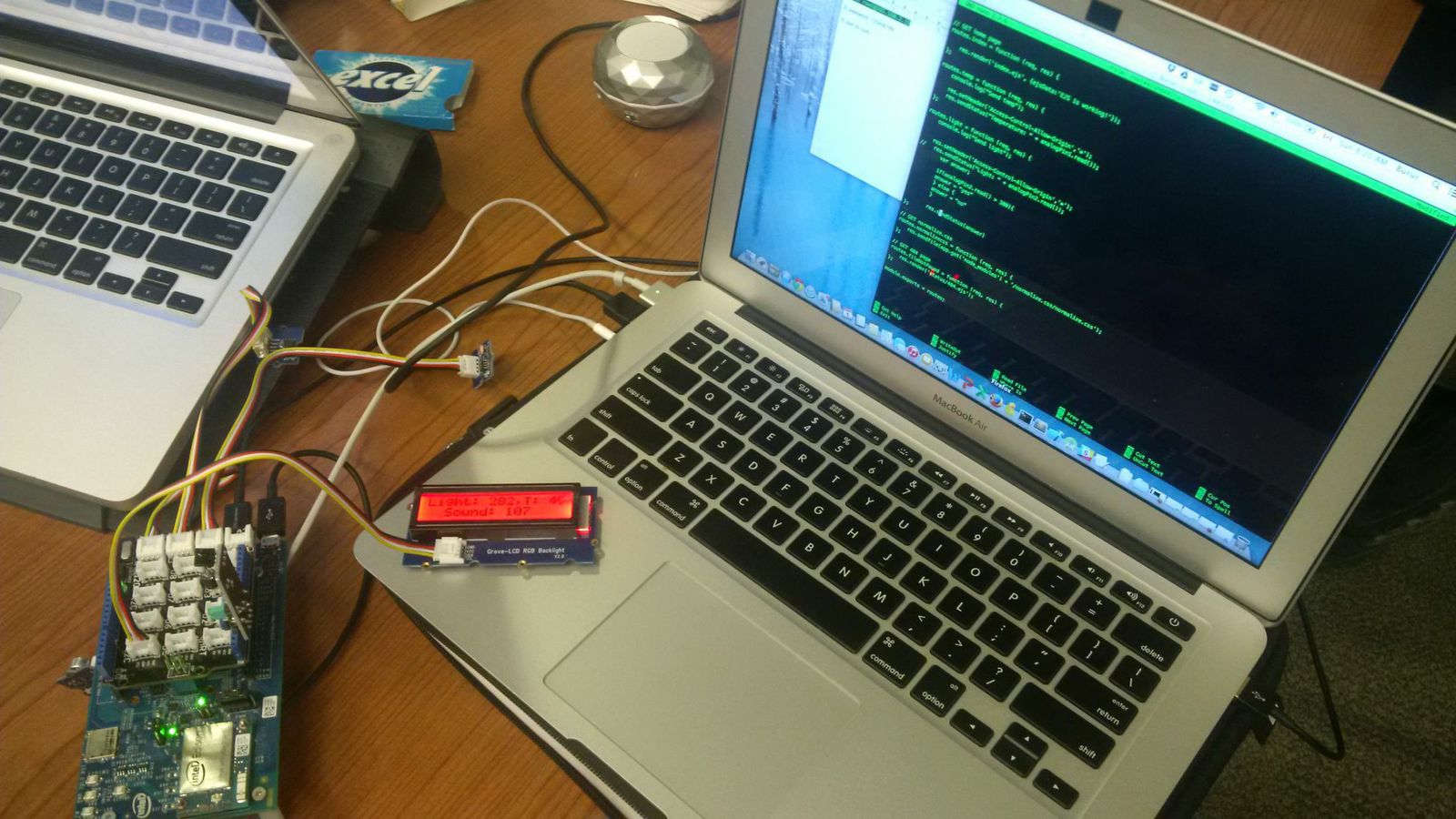Four-man team beats thousands, wins prize with Microsoft
Picture thousands of mostly undergraduate programmers and software engineers converging and taking over a building in Toronto. Some bring sleeping bags for quick naps; others consume vast amounts of stimulants to stay awake, for time is of the essence and in as little in 24 hours of coding they’ll have moved on.
This is a hackathon, and Concordia’s small group is moving up.
Sponsored by the University of Toronto, last weekend’s event saw 17 Concordia students participate, courtesy of student organization HacksConcordia.
Organizer Buruç Asrin and his three teammates—Mathieu St-Louis, Tyler Argo, and McGill student Brendan Gordon—beat out some 1,000 other contestants to win a prize with Microsoft. It was the second time they had done it with the same company in less than six months of attending hackathons.
Asrin says hackathons favour imagination and skill over practicality. Most projects live and die during during those long days, and participants use the time to work on their abilities and brainstorm rather than code fully fleshed-out creations.
“[In the time we have] it’s difficult to make a piece of software that will change the world,” he said.
Their entry in Toronto certainly won’t change the world, but it’s fun. Named after Scarlett Johansson’s A.I. character in the 2013 movie Her, their idea was to create a personable computer assistant similar to Apple’s Siri. Using natural language processing, Scarlett decodes what you’re saying and responds in kind. There are limits, of course; the software can’t cope with ambiguity or complexity, but it will hold up in a simple conversation, and can detect sentiments: tell Scarlett you’re feeling down, for example, and it (she) will play you a happy song to cheer you up.
Considering they only had 36 hours to come up with an idea (one is expected to arrive with empty hands and abide by the gentleman’s rule that frowns on entering with pre-designed code), it’s an impressive idea built upon pioneering work.
“All that natural language processing—which takes years and years to develop—was already done,” Asrin admitted.
Typically sponsorships pay for the transportation and lodging of hackathon contestants as well as the space rentals—and these sponsorships can be huge: Argo said the University of Pennsylvania’s hackathon, PennHacks, had a budget of $300,000. This time around, the Concordia group was reimbursed only $50 for finding their own way to the event. Nonetheless, the event still attracted talent from across the country.
A sense of camaraderie permeates the events. Asrin says it’s partly because everyone is happy to share, but also because they must: the dizzying pace of software development means you must cross lines and seek help. Even rivals like Apple and Microsoft routinely do it.
“Software moves so quickly, we need to understand it. Regardless if we’re competitors, we’re in the same boat,” said Asrin. Argo estimated he reads between 20-30 articles a day to keep up to date.
The increasing importance of hackathons has swelled attendance numbers and consequently raised the bar. The landscape is more competitive and serious, virtual career fairs carefully scouted for talent by top software companies watching in the background. This means that even as they become bigger, some are becoming more closed to the amateur talent that created them.
U.S. hackathons hosted by Ivy League schools now require lengthy application processes asking for credentials and project histories, cutting all but the most accomplished—or the most willing to devote their time to the life. The elitism does not sit well with Asrin and his teammates, even as they understand the progression.
“It’s harder to get in PennHacks than to get into the university,” said Argo. “Hackathons should really be open to everybody. It shouldn’t necessarily need to have experience to attend a hackathon. It should be a learning experience.”
Asrin agreed: “That’s why they were created in the first place: for you to learn something. We were lucky. We were at the beginning of this, so we caught the wave. If I was entering software engineering this year, it would have been difficult for me to enter into a hackathon.”
Hackathons have also taught them a thing or two about confidence in their ability. As Asrin says: “When we went to the Yale hackathon, I came to the realization that it’s an Ivy League school, it’s a top school, but on paper these guys are in real life no better than us. We buy the same textbooks off Amazon, the programming concept we’re taught here is the same. The only difference between him and me is he pays ten times more in tuition that I do. That’s one realization: you’re good enough.”
HackConcordia aims to make everybody feel the same way.
“We’re kind of creating momentum, showing everybody we can compete.”
To that end, they encourage non-programmers to come by and even try it for themselves.
“It’s very easy to feel overwhelmed or feel subpar when you look at all the things there are to learn in software engineering. In reality all you have to do is read a few tutorials and do it,” said Argo.
To learn more about HackConcordia, go to hackconcordia.com
To test Scarlett (requires a working microphone and Chrome browser) go to https://beepboop.azurewebsites.net/




